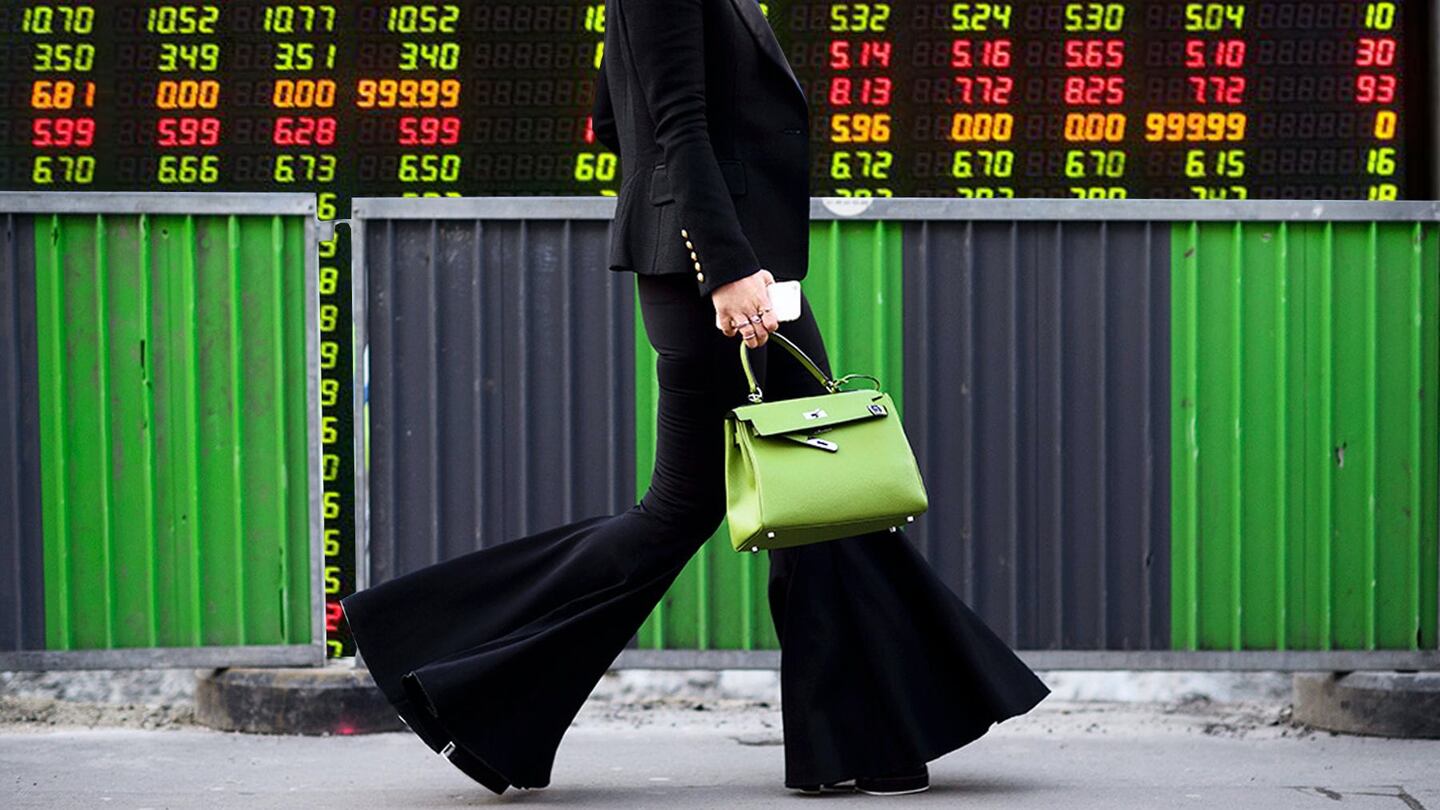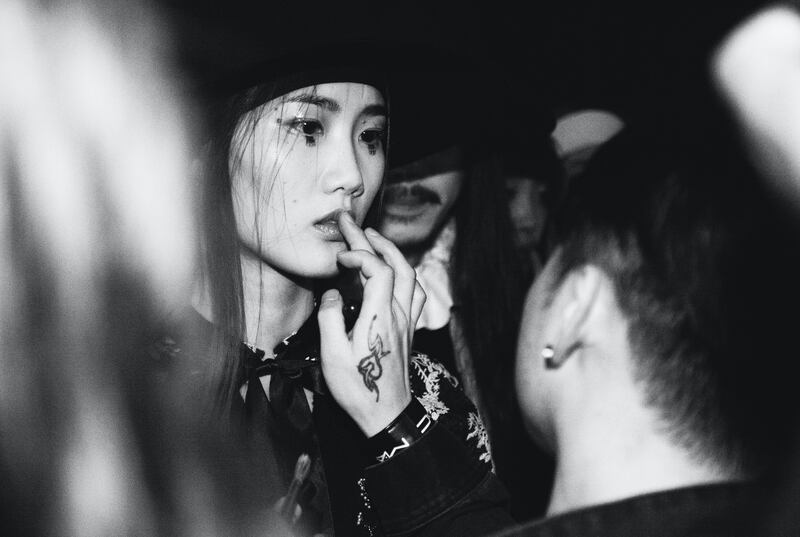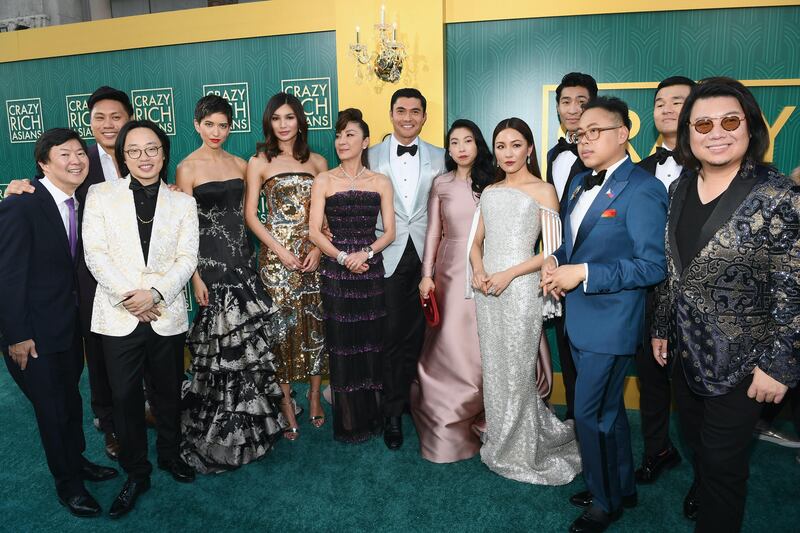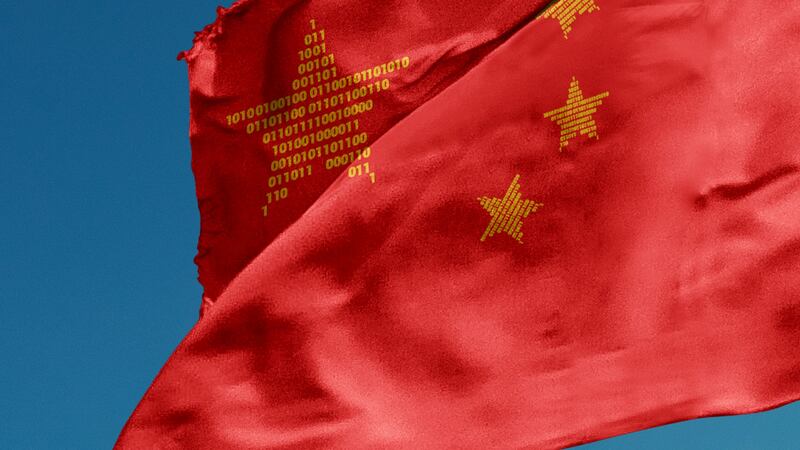
The Business of Fashion
Agenda-setting intelligence, analysis and advice for the global fashion community.

Agenda-setting intelligence, analysis and advice for the global fashion community.

Hello BoF Professionals, welcome to our latest members-only briefing. China’s colossal size and dynamism makes it a top priority for any global business, but it remains opaque to many in the fashion industry. Leveraging our rare access and local knowledge, the BoF China team demystifies the Chinese market with weekly industry analysis and the wider socio-cultural context you need to sharpen your focus.
[ China’s Economic Woes Bite Global Luxury PlayersOpens in new window ]
Fears over China’s slowing growth, an escalating trade war and government crackdown on grey market imports have sent luxury stocks tumbling, but Chinese consumers might still come to the rescue.
SHANGHAI, China — It's no secret that China's macroeconomic situation has been deteriorating for some time. But the past few weeks have thrown this narrative into sharp relief, with the official release of third-quarter GDP growth, at 6.5 percent the slowest in nine years. Adding to the more downbeat outlook is the country's monstrous hidden debt load putting pressure on the yuan, Shanghai's stock market achieving the dubious honour of worst performing in the world for the year (down 25 percent since January) and ongoing uncertainty stemming from China's trade war with the US, which shows no sign of abating.
According to Kevin Lai, chief economist, Asia excluding Japan at Daiwa Capital Markets, the most serious of these problems is a debt to GDP ratio that has already reached 300 percent, by some accounts.
ADVERTISEMENT
“This year things have started to tumble because this debt burden is just too much,” he says, adding that the impacts of the trade war are yet to filter down as orders are front-loaded ahead of the January 1 deadline, when tariffs are expected to increase from 10 percent to 25 percent.
“It will take a while, maybe a few more months or half a year before it starts to hit household incomes, jobs and consumer confidence. So, the impact on consumption will not be felt until later next year.”
The impact on luxury so far
The $121 billion that Chinese consumers spent on luxury purchases last year accounted for 32 percent of the global luxury spend, a share that’s likely to hit 40 percent by 2024, according to Boston Consulting Group. So it is understandable that the luxury industry, increasingly dependent on Chinese consumers for continued growth, has looked upon the country’s macroeconomic developments with trepidation.
For next year, we are going to plan a conservative budget because there are many uncertainties in the air and you have to be realistic.
This nervousness has spread to equity investors, too, with luxury stocks down more than 11 percent since the start of October, wiping out $150 billion in combined market value — their worst showing in a decade.
At last week's BoF China Summit in Shanghai, Ermenegildo Zegna Group chief executive, Ermenegildo Zegna, said his company was already seeing domestic consumer demand wane, a condition he attributes to uncertainty created by China's trade war with the US.
“I am more cautious than three months ago. For next year, we are going to plan a conservative budget because there are many uncertainties in the air and you have to be realistic,” he says.
Grey market crackdown
ADVERTISEMENT
Arguably, the biggest immediate factor concerning global luxury players are unconfirmed reports that China’s continuing crackdown on daigou — parallel imports — will impact consumers buying luxury abroad.
Strictly speaking, Chinese law prohibits people from carrying more than $700 in goods purchased abroad back into the country without paying duties. Traditionally, this hasn’t been enforced, allowing daigou agents to build a thriving industry on the back of overseas luxury purchases, but reports of stricter inspections at Chinese airports over the October Golden Week — a peak international travel period for local consumers — signals trouble for luxury brands because a staggering 32 percent of all purchases made by Chinese consumers are abroad.
When LVMH’s third quarter earnings were released a few weeks ago, it was this development that Jean-Jacques Guiony, the conglomerate’s chief financial officer, called out specifically as an area of concern for the luxury giant, which has seen its share price fall more than 14 percent since the start of October.
Shares in Hong Kong-listed Prada Spa have likewise slumped this month, down more than 25 percent so far over similar concerns. Kering, meanwhile, has seen its share price tumble 23 percent in October.
Speaking at the BoF China Summit, Marco Bizzarri, president and chief executive of Kering's star brand, Gucci, was circumspect about the potential for a daigou crackdown to hurt business.
“I control what I can control. [If] the Chinese authorities decide to stop the daigou, what can I do?” Bizzarri said. “Currency fluctuations, traffic flows, daigou duties. It is something we cannot control as a company, so as a CEO I need to control what I can. I hope that the Chinese customers are now going to spend more in China so we'll do our best to increase their shopping experience here.”
Domestic consumption to the rescue?
In spite of the pessimism enveloping conversations around both China and luxury, there are many, like Bizzarri, who hope the general economic malaise and potential government crackdown on daigou will be countered by ongoing initiatives to boost domestic consumption.
ADVERTISEMENT
A growing percentage of Chinese consumers’ luxury purchases have been made in China since the government decided to ease import taxes on foreign luxury goods over the past 18 months, prompting brands to better harmonise their pricing and bring the Middle Kingdom more in line with international averages.
In practice, this means a handbag that two years ago could have cost 60 percent more in a Shanghai store than a Parisian store, might now cost only 10 percent more, encouraging consumers to buy locally and forego daigou agents — while simultaneously ensuring the government is at least able to collect something in the way of import duties (which they would miss entirely with an overseas or daigou transaction).
The Chinese government is not stupid. They ask: 'Why are people buying overseas instead of at home?' and the answer is China's policy environment.
Peng Lei is the secretary general of the China E-commerce Department Luxury Authentication Centre in Beijing, a newly-created subsidiary of the central government’s Ministry of Industry and Information Technology. He sees the lowering of import tariffs and continued targeting of the daigou industry as a logical evolution for China’s domestic luxury industry.
“The Chinese government is not stupid. They ask: ‘Why are people buying overseas instead of at home?’ and the answer is about China’s policy environment which essentially encourages people to buy overseas,” Peng explains.
“The rate of Chinese people going overseas to buy [luxury goods] will become less and less, [government policy] will get rid of daigou. If you have no daigou, then the money can come home and China can support many more stores, servicing more customers. This all represents the core of China’s normalization of the luxury market.”
In other policy moves aimed at promoting domestic consumption — an ongoing theme in President Xi Jinping’s mission to transition China’s economy away from its traditional reliance on manufacturing and exports, the government responded to last week’s disappointing third-quarter GDP announcement with a new tax plan to be introduced January 1.
If enacted as proposed, it will save middle class consumers on school tuition, housing and elder care, among other things, giving them the confidence to continue their spending boom — at home if not abroad.
The role of China’s e-commerce giants
As with all aspects of Chinese consumer spending, the conversation isn’t complete without considering the role of the country’s massive and growing e-commerce sphere.
According to Chenyin Pan, China director of digital agency Fireworks, the increased focus from e-commerce platforms on providing luxury products to consumers around the country – perhaps particularly those in lower tier cities poorly serviced by brick and mortar stores – will also contribute to greater luxury spending within China.
“Until now, luxury companies might have had ads on WeChat and maybe a presence on [Alibaba’s] Luxury Pavilion or [JD.com’s] Toplife, but the consumers were still purchasing at Galeries Lafayette in Paris,” he says.
“In the future, the e-commerce ecosystem in China is going to become so reliable and so convenient that it won’t make sense for consumers to bother so much with shopping for luxury goods overseas,” Pan claims.
Other experts beg to differ, but whatever their forecast, one thing is clear. While this may be just the beginning of China’s economic pain, its consumers remain a hopeful sign on the luxury horizon, even as the where and how they shop continues to change.
时尚与美容
FASHION & BEAUTY

Backstage at Ban Xiao Xue during Shanghai Fashion Week | Photo: Lolita Sharun for YYO Foundation
Shanghai Fashion Week Comes Into Its Own
When Shanghai Fashion Week drew to a close on October 19th, China's fashion capital was abuzz. "We're seeing emerging designers raise the bar every season, and both local and international media is definitely taking note," said Shanghai Fashion Week's vice secretary general and BoF 500 member Lv Xiaolei when she took the stage with three of the city's leading female fashion entrepreneurs at the BoF China Summit. Seasoned contemporary designers such as Angel Chen rubbed shoulders with commercial brands including Me&City on the runway, over a thousand local and international designers set up camp in the city's many showrooms, and Labelhood championed emerging talent alongside Xcommons' five presentations. (BoF China)
Sasa's Share Price Plummets
Despite reporting a 25.3 percent year-on-year increase in same-store sales for its Hong Kong and Macau locations in the first quarter, Hong Kong-based beauty giant — and China's answer to Sephora — Sasa International Holdings Ltd.'s share price dropped 30 percent in October alone, following its latest earnings announcement on October 18. Although Sasa sales elsewhere — in mainland China, Singapore, Malaysia and online — climbed 2.8 percent, concerns about future growth and consumer sentiment were stoked by soft sales over China's Golden Week holiday in October, traditionally a barometer of broader consumer sentiment. (Sina Finance)
Yuesai Sets its Sights on High-End Domination
L'Oréal-owned Chinese cosmetics brand Yuesai utilises traditional chinese medicine and modern technology to formulate high-end skincare and makeup products for Asian skin types. Traditionally popular with older consumers, the company recently announced plans to become China's top high-end cosmetics brand by refocusing on shoppers between the ages 18 and 40. However, the simultaneous unveiling of supermodel Dujuan and actress Shu Qi as new ambassadors raises immediate questions about the strategy, as both are icons to women of the post-70s and post-80s generation, rather than the country's hottest consumer cohort — those born after 1990. (Jiemian)
科技与创新
TECH & INNOVATION

Source: Shutterstock
Google CEO Speaks Out Amidst 'Project Firefly' Backlash
In his first public comment on 'Project Firefly' — Google's codename for its development of a censored search engine to appease Chinese laws — chief executive Sundar Pichai defended the company's controversial plans to re-enter China. Pichai's response follows months of backlash from Google's online community and employees, who argue that a censored search engine directly contravenes the search giant's mission. "It turns out we'll be able to serve well over 99 percent of the queries," he said. "You're always balancing a set of values… but we also follow the rule of law in every country." (Wired)
Toutiao Launches E-Commerce
Chinese news aggregator Toutiao has quietly launched Zhidian, an e-commerce platform that sells clothes, food and beverages, household goods and kitchenware. In recent years, Toutiao has experimented by partnering with the likes of e-commerce giants JD.com and Taobao: experiences that have clearly encouraged the wildly popular news platform, known for its strength in big data and artificial intelligence, to break into the retail sector. Yet, it will take more than Toutiao's 200 million-strong user base for Zhidian to win over China's cutthroat e-commerce market, which is dominated by its former collaborators, JD.com and Alibaba. (Global Times)
Douyin Vlogger's Anthem Mockery Leads to Five Day Detention
Yang Kaili (also known as Li Ge) was detained for five days by Chinese officials after she livestreamed herself performing an exaggerated rendition of the national anthem on October 7. Three days later, the 21-year-old posted an apology on Weibo stating her plans to "fully accept ideological and patriotic education," though it was unclear whether or not the post was made whilst she was detained. Yang's content and accounts on streaming sites Huya and Douyin — with followers totalling 50 million — have been deleted, and she has been banned from livestreaming in the future. Even as livestreaming platforms appear to provide an outlet for free expression, in Xi Jinping's increasingly repressive China joking about national symbols is no laughing matter. (Business Insider)
消费与零售
CONSUMER & RETAIL

The cast of "Crazy Rich Asians" in August 2018 | Source: Getty Images
Crazy Rich Asians Receives Government Green Light
The hit summer blockbuster based on Singaporean-American writer Kevin Kwan's bestselling trilogy is heading to Chinese cinemas. Crazy Rich Asians was unexpectedly approved by China's national film regulators for release on November 30 after reportedly failing to hear back after an earlier application. China's luxury sector has been showing symptoms of a slowdown following the release of LVMH and Hermès' third-quarter earnings and there is hope that local showings of "Crazy Rich Asians" might prompt Chinese consumers to re-embrace the luxurious lifestyle portrayed in the fashion-filled film, even if the "un-socialist celebration of decadence and ostentatious wealth" doesn't necessarily jive with the central government's values messaging. (Jing Daily)
China Retail Sales Slow Slightly in Third Quarter
National Bureau of Statistics data released October 19 shows retail sales in China posting growth of 9.3 percent for the first three quarters of the year, a marginal decline from the 9.4 percent seen in the first half. Online spending remained robust, with sales surging 27 percent to reach 6.3 trillion yuan in the first nine months of the year, while rural spending growth continues to outpace that of urban Chinese. Though holding relatively steady to this point, the real test for retail in China will come as the US trade war and continued macroeconomic headwinds cut more deeply in coming months. (China.org)
政治、经济与社会
POLITICS, ECONOMY & SOCIETY

Illustration: Chelsea Carpenter for BoF
Beijing Crippled in Trade War by 'Filtered' Input from Domestic Think Tanks
Tariffs on exports aren't the only thing hurting China in its ongoing trade war with the US. Domestic think tanks tasked with giving advice to Chinese policymakers regarding the conflict are reportedly prioritising smooth sailing with supervisors over honest analysis. By conducting insufficient research prior to consultations, serving their backers' interests and varying opinions inconsistently, author Jane Cai says these think tanks could be doing their country's cause more harm than good. If China has any chance of combating its current and future economic headwinds, she asserts, the cultural need to "save face" will have to take a back seat to legitimate research and open debate. (SCMP)
A Focus on 'Xi Jinping Thought' Worries International Sinologist
Study of the president's ideas is becoming increasingly mandatory in China, as students and workers are required to familiarise themselves with 'Xi Jinping Thought'. In many ways, this practice harkens back to the study of Mao Zedong thought in the mid-20th century and begs the question of whether China is returning to a more fervently ideologically-based system. Having completed a short course offered online that covers the main tenets of the president's thought, Foreign Policy author Kevin Carrico argues that "one cannot simultaneously have world-class universities and rigid ideological servitude." (Foreign Policy)
China Decoded wants to hear from you. Send tips, suggestions, complaints and compliments to our Shanghai-based Asia Correspondent casey.hall@businessoffashion.com.
With consumers tightening their belts in China, the battle between global fast fashion brands and local high street giants has intensified.
Investors are bracing for a steep slowdown in luxury sales when luxury companies report their first quarter results, reflecting lacklustre Chinese demand.
The French beauty giant’s two latest deals are part of a wider M&A push by global players to capture a larger slice of the China market, targeting buzzy high-end brands that offer products with distinctive Chinese elements.
Post-Covid spend by US tourists in Europe has surged past 2019 levels. Chinese travellers, by contrast, have largely favoured domestic and regional destinations like Hong Kong, Singapore and Japan.